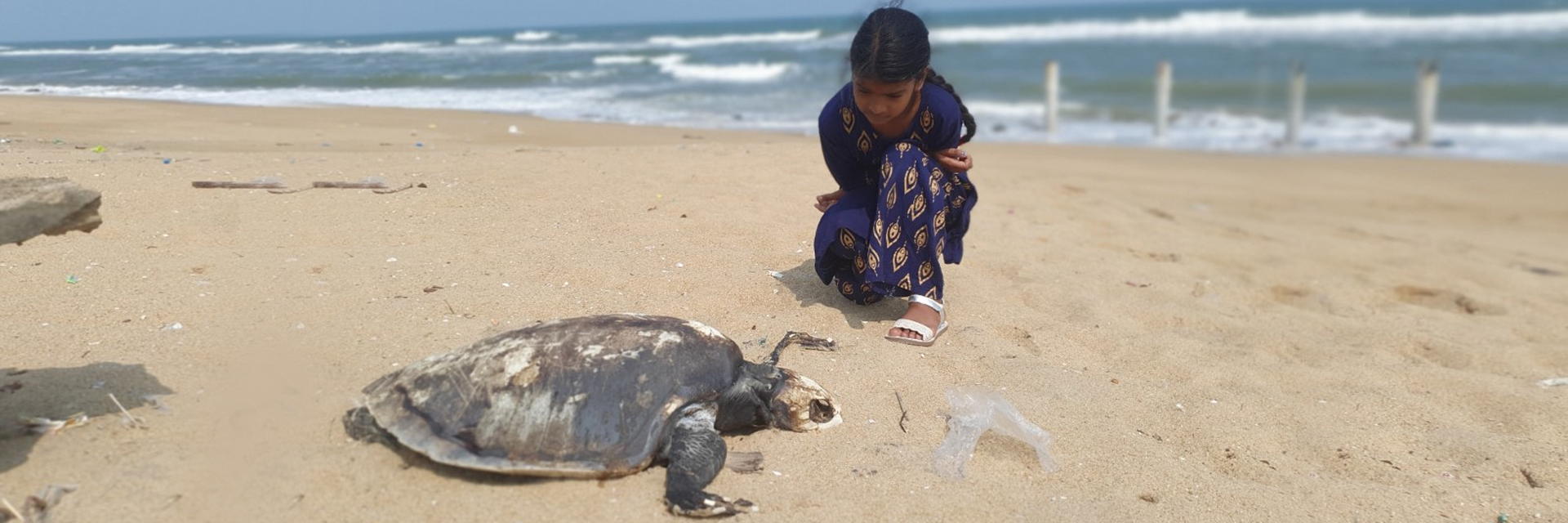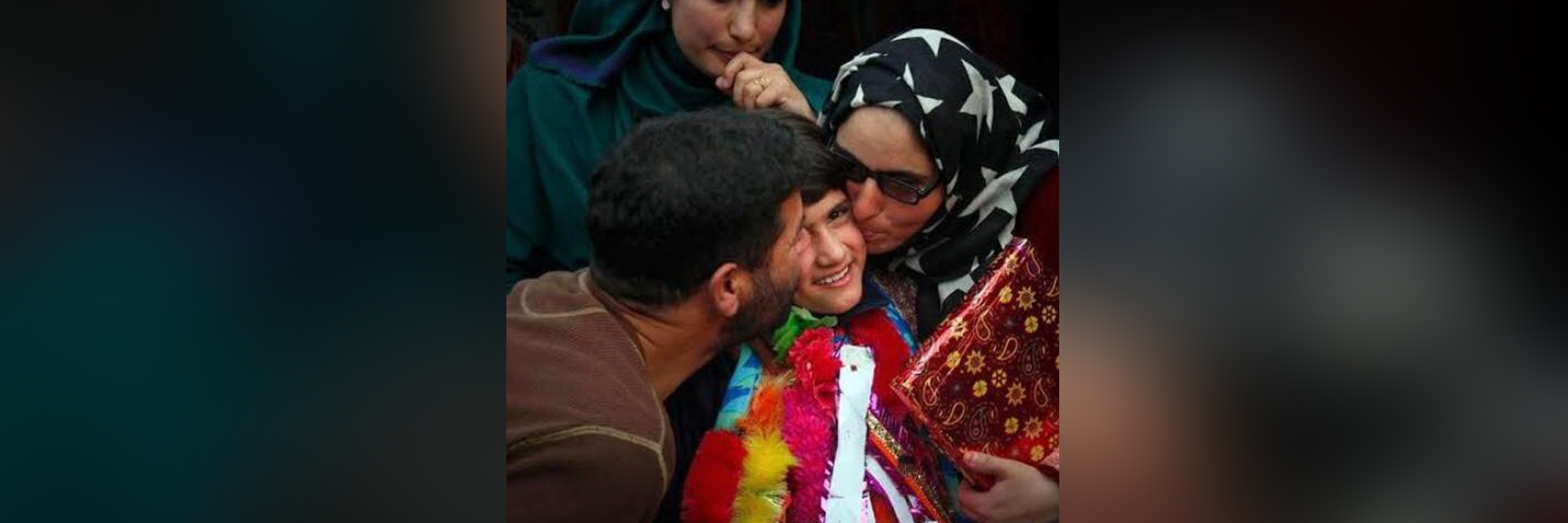(February 22, 2022) “Pristine water, a school of colourful fishes swimming in synchronicity, a jellyfish floating away to the surface, and a dugong resting in water,” are some of eight-year-old Indian scuba diver and eco-crusader Tharaagai Aarathana’s earliest memories of snorkelling. She was just three when she first witnessed the beauty of underwater life, but over the years began to understand the grim reality of marine pollution. “Who’s responsible for the reduced marine life? It’s us! Plastic waste is causing havoc for underwater life, and we should do everything possible to protect it,” Tharaagai tells Global Indian in an exclusive interview.
Sharing a special bond with the ocean, the eco-warrior, who can dive up to 2 metres, has till now fished out 600kg of plastic waste to help protect marine life. Moreover, she set a record in Assist World Records in January 2022 for swimming a 19km stretch from Covelong to Neelankari to bring attention to the cause of conserving aquatic life.

Tharaagai Aarathana is an Indian scuba diver.
Bonding with water
Before she even began crawling, Tharaagai was smitten by water. “She was just three days old when I started adapting her to water. Every day for 10 minutes in the morning and evening, I would make her sit in the water,” says her father Aravind Tharunsri, who is a scuba diving instructor. Tharaagai’s love for water was a gift to her from her dad, something she has held onto dearly in the last eight years. “I was nine months old when I started floating in the water, and by the time I turned two-and-a-half, I had begun swimming. Over the years, I have formed a strong bond with water,” says the girl who began training for scuba diving in shallow waters when she was five. From learning in a small tub to practicing in the swimming pool, Thaaragai made sure to follow her dad’s instructions to the tee. “We played games like collecting coins from the bottom of the tub as a part of the practice session,” adds the Class 2 student.
An eco-crusader in the making
A water baby, Tharaagai loves being in the ocean, and this proximity to the sea has made her aware of marine pollution. “I was three when I started accompanying my father to weekly beach cleanups. Though I didn’t understand much back then, I did see a lot of plastic waste on the beaches,” says the Chennai resident, who is now an eco-crusader. Thanks to her dad, she learned about ocean pollution while seeing him impart training to the Tamil Nadu Marine Police and fisheries department along with the Wildlife Institute of India a few years ago. “Since I’d be accompanying my dad to the training, I learned how plastic and abandoned nets were adding to the pollution and affecting marine life,” explains Tharaagai who has been raising awareness on protecting endangered marine species, especially the Dugong (sea cow).
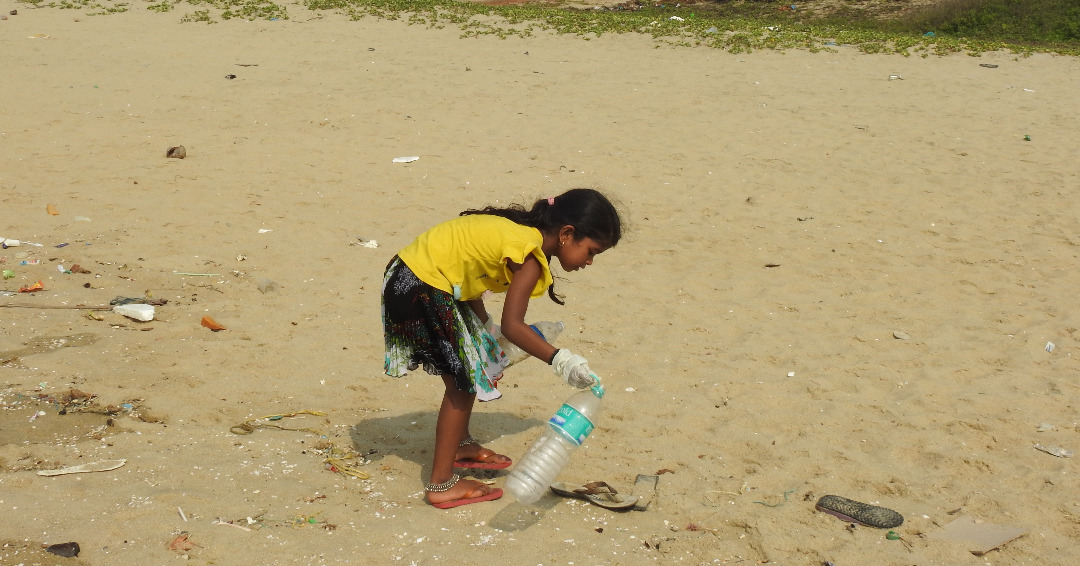

Tharaagai Aarathana collecting plastic waste from a beach
“During the awareness programs and training, she would absorb all the information. She learned that there are less than 150 dugongs left in India, and decided to save them from plastic pollution. She is creating awareness among kids through presentations in various schools,” beams her proud father, who himself has been working closely to protect marine life for many years now. 44-year-old Aravind started South India’s first-ever scuba diving center Temple Adventures in Pondicherry in 2007. “Back then, there were only 2-3 scuba diving centres in the country. A chance encounter with two Australian friends in 2004 changed my life forever when they introduced me to scuba diving as a profession. There has been no looking back since then,” adds Aravind.
Like father, like daughter
His passion for protecting the environment has rubbed off on his daughter as the two are now working as a team of eco-crusaders. “She has collected over 200 kgs of plastic waste from the ocean bed and 400 kgs from beaches, while I have collected over 15,000 kgs of plastic waste till now. Every week, we clean up the beaches as well as the ocean beds. I then segregate the plastic and send the one that can be upcycled to the recycle plant. While the other is taken care of by the government who dispose of it properly,” reveals Aravind.
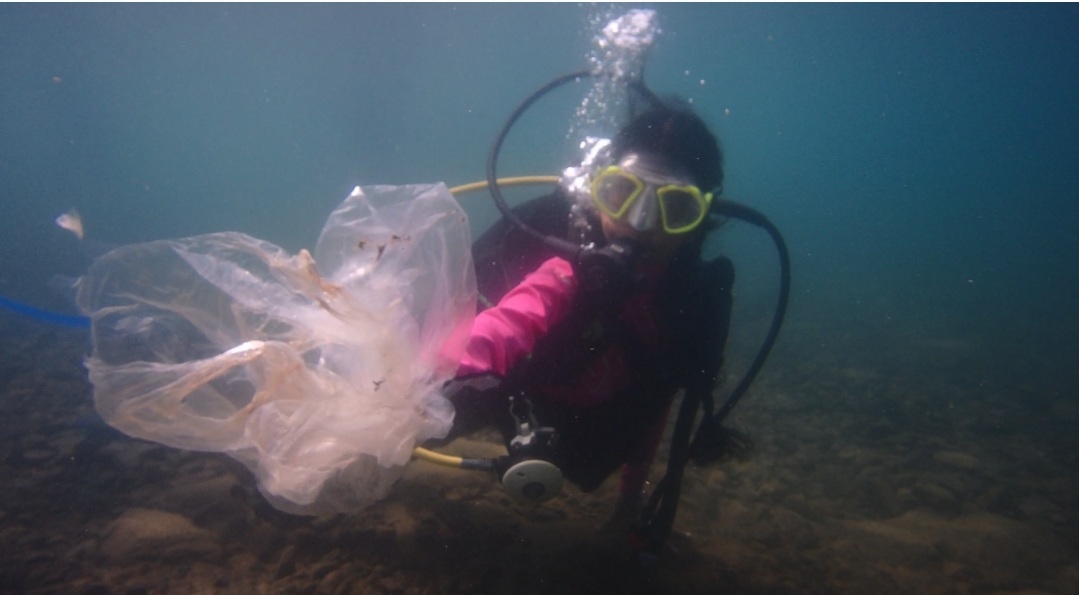

Tharaagai Aarathana collecting plastic from ocean bed
Tharagaai learned the grim reality of marine pollution when she saw her father bring heaps of plastic waste from the ocean bed to the shore. “Every year scuba divers rescue innumerable marine species that become entangled in the abandoned nets. It breaks my heart to see marine life affected by the waste,” says the Indian scuba diver. Too young to rescue the fishes now, she is keen to follow suit when she grows up. “Many fishes get tangled in the ghost nets and often die. Turtles, on the other hand, unintentionally consume plastic as it resembles jellyfish. The pollution is threatening the marine ecosystem but we try our best to protect it by cleaning the ocean beds and beaches,” adds Aravind, who wants to educate the next generation to feel a greater sense of responsibility towards the environment.
Following in her father’s footsteps, Tharaagai is helping bring attention to conserving marine life. On National Girl Child Day (January 24) this year, she set a record in Assist World Records for swimming a 19-km stretch from Covelong to Neelankari, under the theme Save the Ocean. “She completed it in six hours and fourteen minutes, despite drastic weather changes. It started raining, and the temperature dropped and it got cold. I tried to talk her out of it, but she continued and finished the stretch,” says Aravind who was swimming alongside his daughter to motivate her.
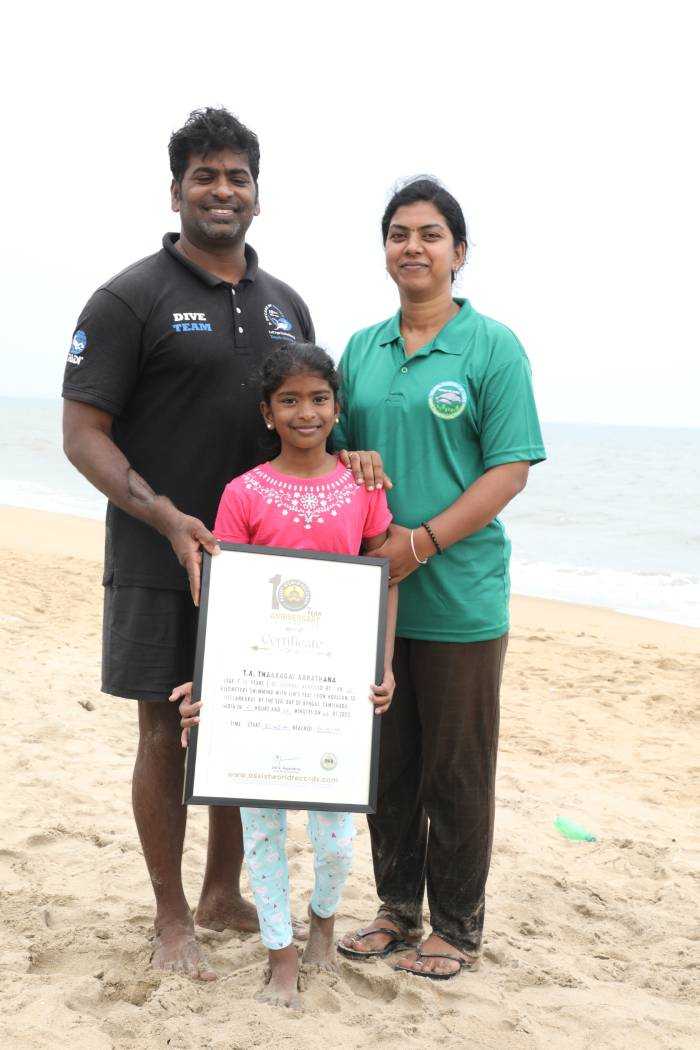

Tharaagai with her parents
Tharaagai, who wants to be a scuba diver like her father when she grows up, loves cycling and exercising. Being home-schooled, she enjoys the freedom to travel with her dad to different locations in India and work as an eco-crusader. “Caring for the planet Earth,” is the biggest lesson that she has learned in her journey. The eight-year-old, who fishes out plastic waste from the ocean to conserve marine life, is asking people to not use plastic. “Marine life will be safe if you don’t use plastic,” advises the young Indian scuba diver.
- Follow Aravind Tharunsri on Linkedin

